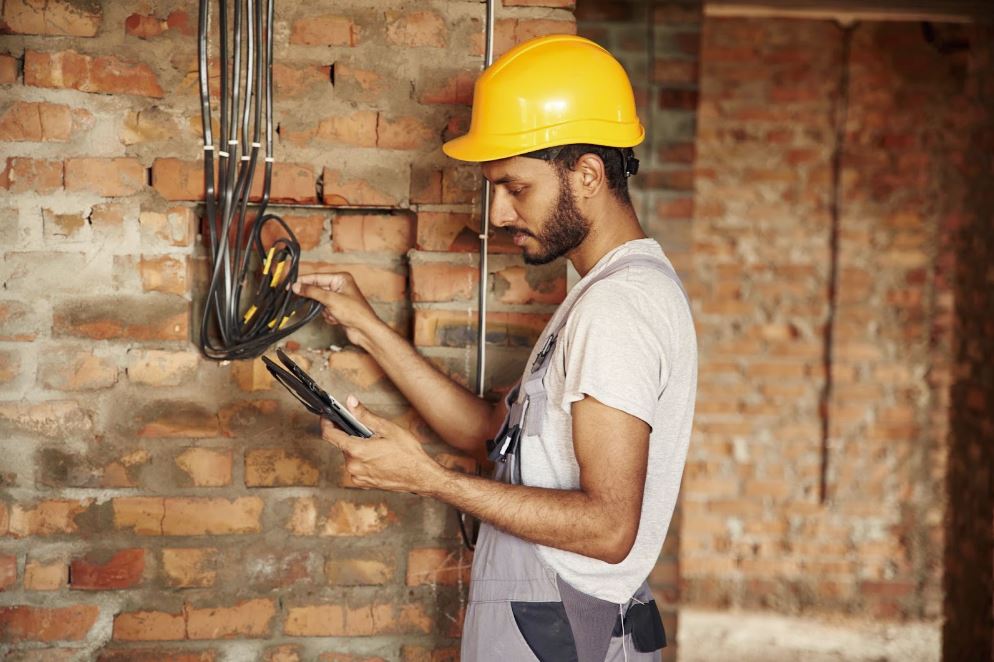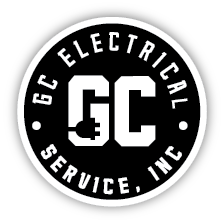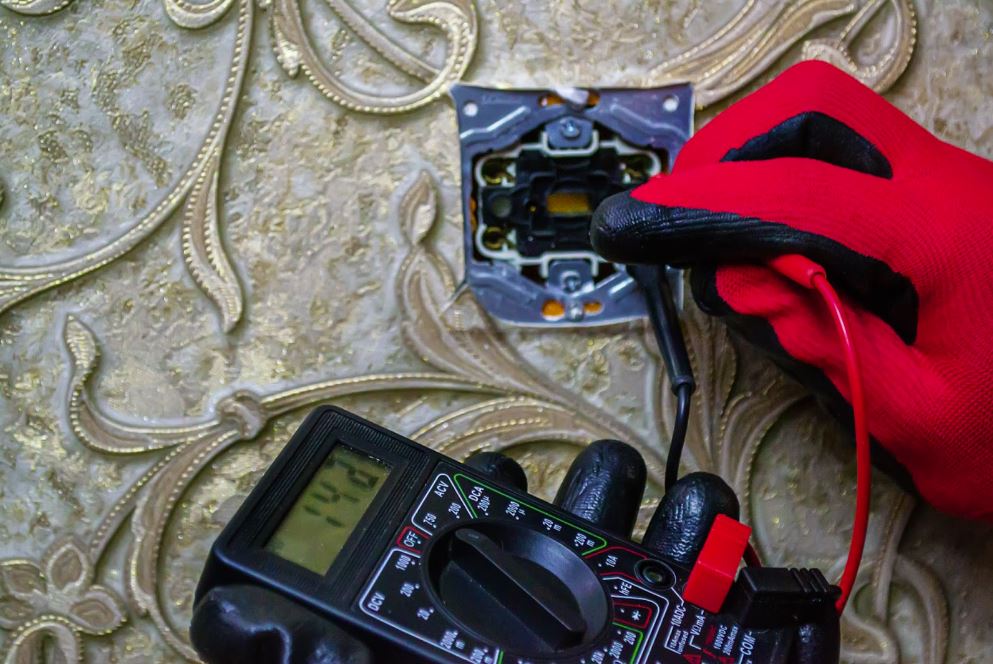Older homes have a certain allure with unique architecture, historical charm, and timeless craftsmanship. However, beneath the surface of their beauty often lies outdated electrical systems that may not meet today's safety standards. As more modern appliances and devices fill these homes, the electrical demand can overwhelm wiring installed decades ago. If adequately inspected and maintained, an older home can avoid significant safety risks, including fire hazards and system failures. Ensuring your older home is up to modern electrical standards starts with a thorough residential electric inspection.
What Is a Residential Electric Inspection?
A residential electrical inspection is a thorough evaluation of a home's electrical system by a licensed electrician. During the inspection, professionals examine wiring, electrical panels, outlets, circuits, and grounding systems to ensure they meet current safety standards. Inspectors often uncover hidden issues in older homes, like worn-out wiring or outdated configurations. Unlike newer homes, older properties may be unable to support modern electrical loads, making these inspections even more critical.
Why Older Homes Require Residential Electric Inspections
Homes built more than 40 years ago often contain outdated wiring systems that cannot handle the electrical demands of today's households. Few homeowners anticipated the constant use of high-powered appliances, electronic devices, and advanced lighting systems when these homes were built. Outdated systems can cause circuits to overload, increasing the risk of electrical fires. Regular inspections help identify areas that need to be upgraded or replaced, ensuring your home is safe and efficient for modern living.
Benefits of Residential Electrical Inspections for Older Homes
Residential electrical inspections bring peace of mind, especially for those living in older homes. These inspections offer benefits beyond safety, ensuring long-term savings and home value retention.
Ensures Home Safety
The primary benefit of electrical inspections is the increased safety they provide. Aging electrical systems are more prone to fire hazards due to deteriorating wiring, faulty connections, or insufficient grounding. Inspectors often discover problems like frayed wires, exposed connections, or old circuit breakers that can no longer handle modern electrical loads. By identifying these hazards early, homeowners can take action to prevent electrical fires and ensure their homes are safe.
Prevents Expensive Repairs
Catching electrical issues during inspections can save homeowners significant money in the long run. Minor electrical problems, if left unaddressed, can escalate into more costly repairs, such as complete rewiring or replacing entire panels. For example, replacing a few damaged wires is far less expensive than dealing with an electrical fire or complete circuit failure. Inspections prevent these costly repairs and help improve energy efficiency, reducing utility bills.
Protects Home Value
A well-maintained electrical system contributes directly to a home's value, especially in older properties. Potential buyers today expect homes to meet modern safety standards, and an outdated electrical system can be a significant drawback during a sale. Regular electrical inspections help keep your home up to date, preventing potential buyers from walking away due to electrical concerns. Ensuring a home's safe and functional electrical system can make it more appealing to buyers and protect your investment.
Common Residential Electrical Issues Found in Older Homes
Older homes have a distinct charm but can also have outdated electrical systems. Many of these homes still rely on aging infrastructure that cannot meet today's electrical demands. Understanding the common electrical problems in older houses can help homeowners identify potential risks before they cause harm.

Outdated or Damaged Wiring
One of the most common issues in older homes is outdated wiring, such as knob-and-tube systems, which were standard before the 1950s. These older wiring systems can be brittle and prone to wear, leading to dangerous short circuits or electrical fires. In addition, modern homes require more power than these old systems can handle, leading to an increased risk of overheating. Regular inspections can help identify whether a home's wiring needs to be updated to prevent potential hazards.
Overloaded Circuits
Many older homes were not built to handle the electrical loads required by modern appliances and electronics. It leads to overloaded circuits, which can cause breakers to trip frequently or, worse, spark an electrical fire. Signs of an overloaded circuit include flickering lights, frequent breaker trips, and outlets that feel warm to the touch. Inspections can pinpoint overloaded circuits, allowing homeowners to redistribute the electrical load or install additional circuits to meet their needs safely.
Improperly Grounded Outlets
Grounding is a critical safety feature in modern electrical systems, but many older homes lack appropriately grounded outlets. Electrical current can build up without grounding and pose a severe shock hazard to anyone using the outlet. This issue is particularly concerning for homes that still use two-prong outlets instead of the safer three-prong versions. Inspections can reveal whether the home's outlets are correctly grounded and recommend the necessary upgrades to improve safety.
Types of Residential Electric Inspections for Older Homes
Different types of inspections serve other purposes when it comes to older homes. Whether you're maintaining your home, buying a new one, or meeting insurance requirements, an electrical inspection offers valuable insight. Each type of inspection ensures your home is safe and up to date with modern standards.
Routine Inspections
Routine electrical inspections are essential for maintaining the safety and efficiency of an older home. Even if no immediate problems are apparent, aging electrical systems can deteriorate over time, leading to hidden risks. During routine inspections, electricians check for signs of wear, outdated components, or overloading. These inspections allow homeowners to address issues early, preventing more severe problems and maintaining a safer living environment.
Pre-Purchase Inspections
A pre-purchase inspection is needed if you're considering buying an older home. It gives potential buyers a clear understanding of the home's electrical condition and helps avoid costly surprises after the purchase. Inspectors typically focus on the wiring, electrical panels, and overall system capacity to ensure the home can support modern demands. Buyers can make informed decisions and negotiate necessary repairs or price adjustments by identifying electrical issues early.
Insurance Inspections
Many insurance companies require electrical inspections for older homes before issuing or renewing coverage. That is because outdated electrical systems pose a higher risk of fires, which can lead to costly claims. Inspectors assess the electrical system's wiring, panel, and overall safety to ensure it meets the insurer's safety standards. Inadequate electrical systems can result in higher premiums or even denial of coverage, making this inspection critical for older home insurance policies.
Signs Your Older Home Needs a Residential Electrical Inspection
While routine inspections are essential, sure signs indicate that immediate attention is necessary. Knowing these warning signs can help you prevent electrical failures or potential disasters.
Frequent Circuit Breaker Trips
If your circuit breaker frequently trips, this is a clear indication that your electrical system is overloaded or malfunctioning. Older homes were not designed to handle the number of electrical devices modern families use, and circuits can quickly become overwhelmed. Frequent breaker trips are more than just a nuisance—they signal that your electrical system struggles to meet demand. Ignoring this sign can increase the risk of electrical fires or appliance damage.
Flickering or Dimming Lights
Flickering or dimming lights might seem minor, but they often point to a major problem within the electrical system. Faulty wiring, overloaded circuits, or a failing electrical panel could cause this. This issue is common in older homes when electrical systems are outdated and improperly maintained. If your lights frequently flicker or dim, especially when you turn on other appliances, it's time for an inspection.

Unusual Smells or Noises
An odd smell, such as burning or melting plastic, can indicate serious electrical problems that require immediate attention. Similarly, buzzing or sizzling sounds near outlets, switches, or the breaker box are warning signs of electrical arcing or faulty connections. These issues are hazardous because they can lead to electrical fires if left unchecked. If you experience these unusual odors or sounds, an electrical inspection is necessary to diagnose and fix the underlying problem.
Discolored Outlets or Switches
If you notice that outlets or switches are discolored, it's a sign of overheating or damage inside the electrical system. Scorch marks, brown or black streaks, or even warmth to the touch around outlets suggest that your electrical wiring is not functioning correctly. Over time, this can lead to sparks or fires. Replacing the outlet without addressing the root cause will not solve the problem; an inspection is needed to identify the source of overheating and prevent further damage.
Old or Two-Prong Outlets
Many older homes still have two-prong outlets, which need more grounding for modern electrical devices. Grounded outlets protect against electrical shocks and improve overall safety. The absence of grounding means that your home is vulnerable to electrical faults, which can damage electronics and pose a safety hazard for residents. If your home still uses these outdated outlets, upgrading to grounded, three-pronged outlets should be a priority, and an inspection can ensure this is done correctly.
Electrical Shocks
Experiencing a mild shock when plugging in or unplugging an appliance can be unsettling and is not something to ignore. It usually points to grounding or wiring issues. Electrical shocks can happen when an outlet is improperly grounded or when wiring inside the walls is damaged. Even mild shocks can signal more significant problems within the system that could lead to severe safety risks. Scheduling an electrical inspection is crucial if you've noticed this issue.
Actions to Take After a Residential Electrical Inspection
After an electrical inspection, homeowners can proactively address any issues to prevent further risks and enhance their safety. Fixing minor problems and making essential upgrades will secure homeowners' electrical integrity for years.
Address Immediate Issues
After any electrical inspection, the first step is to resolve any immediate problems the electrician identifies. Issues like damaged wiring, faulty outlets, or overloaded circuits should be handled quickly to avoid safety hazards. Delaying repairs could result in fires, electrical shocks, or system failure, putting the household at risk. Immediate maintenance ensures the safety of your home and the people living in it.
Upgrade Electrical Panels
Older homes often need modern electrical panels to meet today's energy demands. Upgrading the panel allows the home to safely manage modern appliances, air conditioning units, and entertainment systems. Newer panels improve safety and efficiency by preventing overloads and ensuring consistent power delivery. An upgraded panel is also a key selling point for future homebuyers prioritizing modern electrical infrastructure.
Consider Rewiring the Home
In some cases, an inspection may reveal that rewiring the entire home is necessary, especially if the house still has knob-and-tube wiring. Rewiring modernizes the home's electrical system, making it safer and more capable of handling current power needs. By investing in complete rewiring, homeowners can prevent potential fires, reduce energy waste, and increase the home's overall functionality. Additionally, rewiring can significantly boost the property's value and appeal to future buyers.
Prioritizing Residential Electrical Inspections In Your Older Home
Owning an older home comes with unique rewards, but it also brings responsibilities, especially regarding electrical safety. The charm of vintage architecture shouldn't come at the cost of ignoring outdated or potentially hazardous wiring. Regular electrical inspections offer an essential safeguard, ensuring your home is functional and safe for your family.
Identifying potential risks early on can prevent catastrophic damage and costly repairs. Investing in inspections and necessary upgrades enhances the longevity and value of your home, giving you peace of mind as you enjoy its timeless beauty. Make electrical safety a priority today and secure your home for the future.
For more insights on keeping your home safe, visit our GC Electrical Service Inc. blog.


